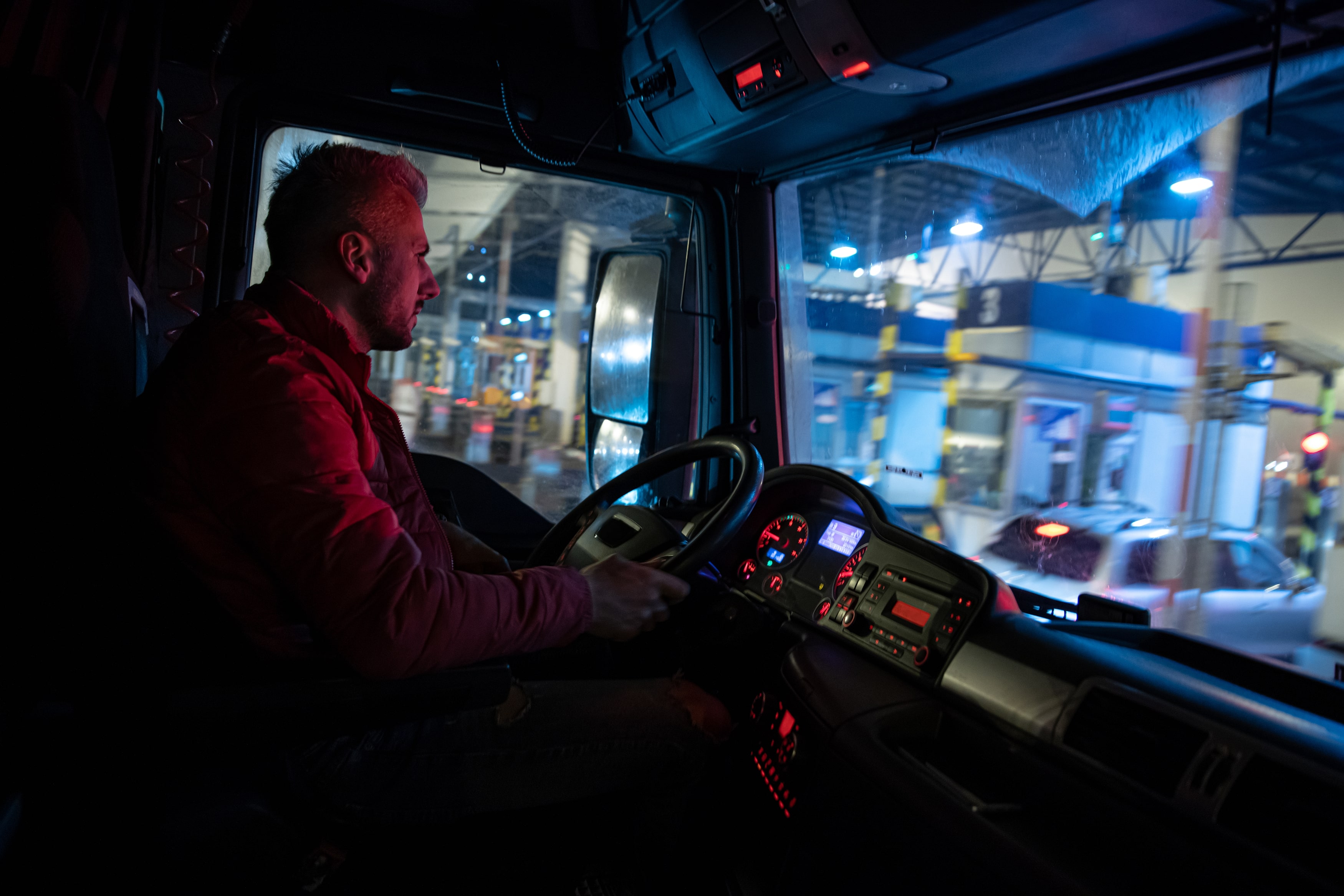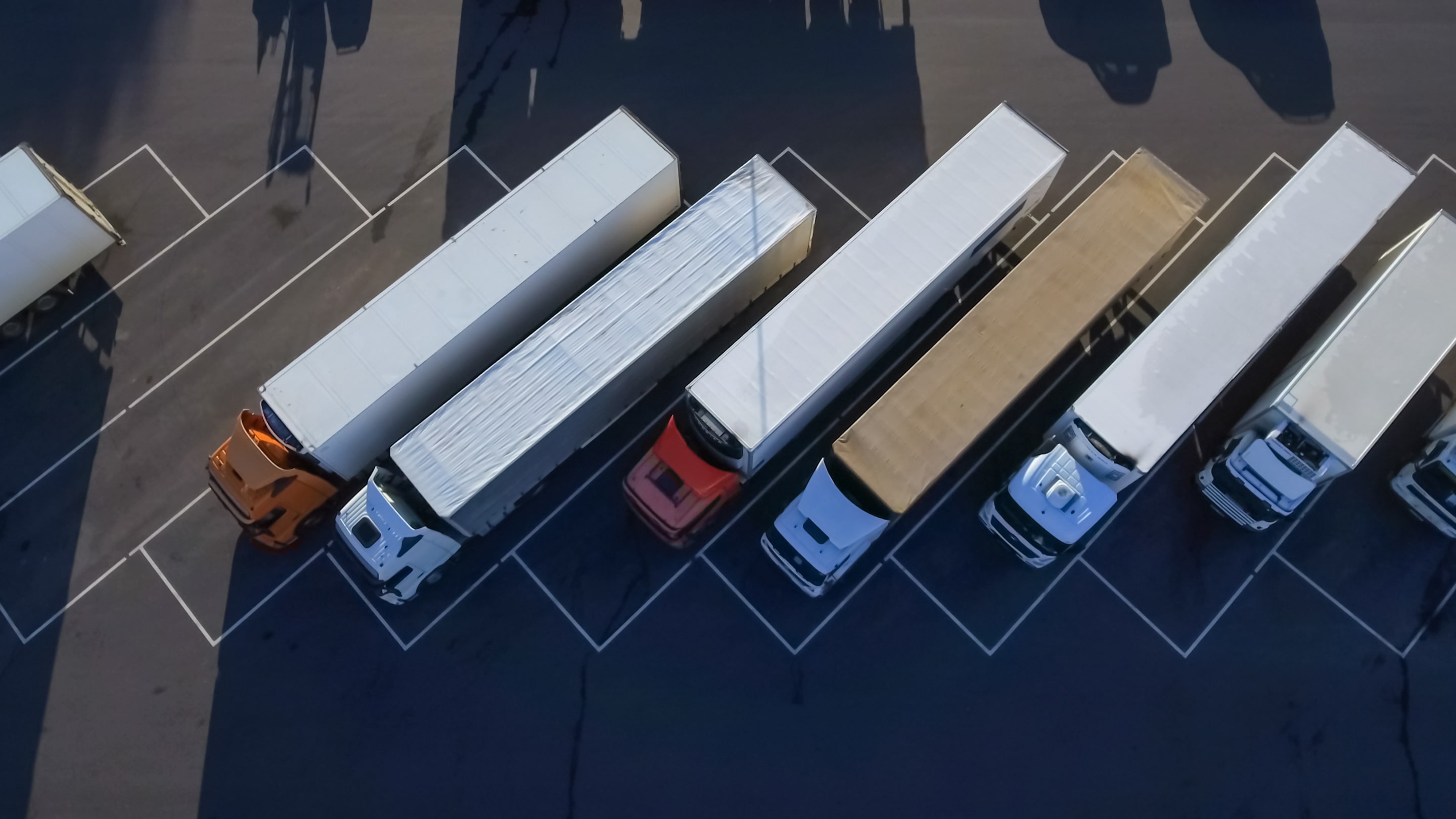
Guest
Bekämpfung des Lkw-Fahrermangels im Vereinigten Königreich im Jahr 2024/2025
Erstellt: 16.08.2024
•
Aktualisiert: 10.10.2024
Der Mangel an Lkw-Fahrern im Vereinigten Königreich ist eine komplexe und vielschichtige Herausforderung mit weitreichenden Auswirkungen auf die Wirtschaft und die Lieferketten des Landes. Die konzertierten Bemühungen der Regierung, der Industrie und der Interessengruppen haben jedoch zu ersten positiven Ergebnissen geführt, die darauf hindeuten, dass sich das Blatt wenden könnte.
Mit Blick auf die Jahre 2024 und 2025 ist das fortgesetzte Engagement zur Behebung des Fahrermangels in Verbindung mit einer Konzentration auf die Anwerbung und Bindung talentierter Arbeitskräfte von entscheidender Bedeutung, um die langfristige Widerstandsfähigkeit und den Wohlstand des Verkehrssektors zu gewährleisten.
Das Ausmaß der Krise
Der Mangel an Lkw-Fahrern im Vereinigten Königreich ist ein wachsendes Problem, das im Jahr 2021 einen kritischen Punkt erreicht. Branchenberichten zufolge fehlten auf dem Höhepunkt der Krise rund 100 000 Lkw-Fahrer im Land. Diese Zahl stellt einen deutlichen Anstieg gegenüber den 59 000 Fahrern dar, die 2019 fehlten, und unterstreicht die rasche Verschlechterung der Situation.
Die Faktoren, die zu diesem Mangel beitrugen, waren vielfältig, darunter die Auswirkungen der COVID-19-Pandemie, die Folgen des Brexit und Änderungen der IR35-Steuerregeln, die sich auf Lkw-Fahrer auswirkten, die von Agenturen auf Vertragsbasis beschäftigt wurden. Diese Störungen führten dazu, dass viele erfahrene Fahrer die Branche verließen, während nicht genügend neue Talente auf den Markt kamen, um die Lücke zu füllen.

Eingreifen der Regierung und Bemühungen der Industrie
Die britische Regierung und die Interessenvertreter der Branche haben den Ernst der Lage erkannt und entscheidende Schritte unternommen, um den Mangel an Lkw-Fahrern zu beheben. Das Verkehrsministerium meldete eine bemerkenswerte Verbesserung: Der Prozentsatz der von den Speditionsunternehmen gemeldeten offenen Stellen für Lkw-Fahrer sank von 43 % im vierten Quartal 2021 auf 23 % im dritten Quartal 2023.
Eine der wichtigsten Maßnahmen war die Aufstockung der Mittel für die Anwerbung und Ausbildung neuer Lkw-Fahrer. Die Regierung beschleunigte auch das Verfahren zur Erlangung von Lkw-Fahrerlaubnissen und investierte 8 Millionen Pfund in die Verbesserung der Qualität von Lkw-Rastplätzen, um das seit langem bestehende Problem der schlechten Arbeitsbedingungen für Fahrer anzugehen.
SNAP unterstützte mehrere britische Fuhrparks bei der Beantragung staatlicher Mittel zur Verbesserung ihrer Einrichtungen. Erfahren Sie mehr über die LKW-Parkplätze , die dem SNAP-Netzwerk angehören.
Überalterung der Belegschaft und Gewinnung jüngerer Talente
Eine der anhaltenden Herausforderungen in der Lkw-Fahrerindustrie ist die Überalterung der Belegschaft, wobei das Durchschnittsalter der Fahrer bei 48 Jahren liegt. Die Branche hat Schwierigkeiten, jüngere Talente anzuziehen, da die Wahrnehmung schlechter Arbeitsbedingungen, durchschnittlicher Löhne und eines wenig inspirierenden Karrierewegs viele davon abhält, eine Karriere als Lkw-Fahrer in Betracht zu ziehen.
Deshalb hat die Regierung vor kurzem eine Konsultation zur Senkung des Mindestalters für Busfahrer eingeleitet, um jüngeren Menschen mehr Möglichkeiten für den Einstieg in den Verkehrssektor zu eröffnen. Dieser Schritt könnte in Verbindung mit Bemühungen zur Verbesserung der Einrichtungen für Fahrer und der Arbeitsbedingungen dazu beitragen, die Branche für die nächste Generation von Arbeitnehmern attraktiver zu machen.
Siehe [Karte] (https://snapacc.com/map/) der Lkw-Parkplätze, Lkw-Waschanlagen und Unterkünfte in verschiedenen Regionen des SNAP-Netzes.

Überwindung gesetzlicher Hürden und mehr Flexibilität
Ein weiterer Faktor, der zum Mangel an Lkw-Fahrern beiträgt, sind die regulatorischen Hürden und der bürokratische Aufwand, mit denen neue Fahrer beim Einstieg in die Branche konfrontiert werden. Das Verfahren zur Erlangung der erforderlichen Lizenzen und Bescheinigungen kann zeitaufwändig und kostspielig sein, was potenzielle Bewerber abschreckt.
Um dieses Problem zu lösen, haben sich die Interessenvertreter der Branche für flexiblere Ausbildungs- und Prüfungsverfahren eingesetzt, ähnlich wie bei den Busunternehmen. Durch die Straffung des Prozesses und die Erleichterung des Zugangs hofft man, die Zahl der qualifizierten Fahrer, die auf den Markt kommen, zu erhöhen.
Die Auswirkungen von Brexit und COVID-19
Der Lkw-Fahrermangel im Vereinigten Königreich hat sich durch die Folgen des Brexit und die durch die COVID-19-Pandemie verursachten Störungen weiter verschärft. Der Verlust von EU-Fahrern, die zuvor einen erheblichen Teil der britischen Lkw-Fahrerschaft ausmachten, war ein schwerer Schlag.
Darüber hinaus haben die Auswirkungen der Pandemie auf die Ausbildung und Prüfung zu einem Rückstau an neuen Fahrern geführt, die auf den Markt kommen. Da sich die Wirtschaft erholt hat, hat die gestiegene Nachfrage nach Gütern und Dienstleistungen den bereits angespannten Transportsektor noch stärker belastet.

Zusammenarbeit und Innovation
Um den Lkw-Fahrermangel zu beheben, bedarf es gemeinsamer Anstrengungen von Regierung, Industrie und Bildungseinrichtungen. Indem sie zusammenarbeiten, können sie umfassende Lösungen entwickeln, die die Ursachen des Problems angehen und ein nachhaltigeres und widerstandsfähigeres Verkehrssystem schaffen.
Innovative Ansätze, wie der Einsatz von Technologien zur Optimierung der Logistik und zur Verbesserung der Fahrereffizienz, können ebenfalls eine entscheidende Rolle bei der Abmilderung der Auswirkungen des Fahrermangels spielen. Investitionen in Infrastruktur, Schulungsprogramme und fahrerorientierte Initiativen können dazu beitragen, eine stärkere, vielfältigere und widerstandsfähigere Belegschaft aufzubauen.
Der Weg nach vorn
Während das Vereinigte Königreich durch die sich entwickelnde Landschaft des Lkw-Fahrermangels navigiert, ist es klar, dass die Lösung einen vielschichtigen Ansatz erfordert. Die fortgesetzte Unterstützung durch die Regierung, die Zusammenarbeit mit der Industrie und die Verpflichtung, talentierte Fahrer anzuziehen und zu halten, werden entscheidend sein, um die Widerstandsfähigkeit des nationalen Transportnetzes zu gewährleisten.
Auch wenn die Krise in naher Zukunft nicht vollständig gelöst werden kann, so geben die bisher unternommenen Schritte doch einen Hoffnungsschimmer. Wenn sich das Vereinigte Königreich weiterhin auf Innovation, Flexibilität und Inklusivität konzentriert, kann es auf eine Zukunft hinarbeiten, in der der Verkehrssektor in der Lage ist, die wachsenden Anforderungen der Wirtschaft und die Bedürfnisse seiner Bürger zu erfüllen.


